Unexplained Weight Loss in an 84-year-old man. This is a severe concern in the ageing population; however, it often remains unnoticed until severe health outcomes are reached due to neglect of early screening.
While younger individuals may attempt to lose weight on purpose for health reasons, involuntary weight loss in elderly adults often suggests more severe health complications.
Table of Contents
ToggleUnexplained Weight Loss in 84-year-old man
This problem is prevalent in senior age groups and may have serious consequences, such as higher mortality, loss of independence, and deterioration in quality of life.
My article aims to provide detailed information on the causes, effects, and therapeutics available for unintentional weight loss, particularly in ageing, an ever-growing problem that influences older adults.
Causes of Unintentional Weight Loss in Older Adults
Weight loss in the elderly is likely due to many factors, from age-related changes to more severe health problems. This is important to prevent early diagnosis and timely treatment.
Physiological Changes and Aging
Multiple physiological alterations occur with ageing. One common feature is the loss of skeletal muscle mass (sarcopenia), which can account for a large proportion of non-fat body weight wasting.
Age-related muscle mass loss is a common contributing factor in unintentional weight loss, as it has been shown that decreased activity or a sedentary lifestyle can develop this ailment. In addition, the ageing process causes metabolic rates to slow down, which also conspires with older people not wanting so much food, and they may lose weight.
Medical Conditions
Background In older individuals, unintentional weight loss is frequently attributed to underlying medical conditions. Weight loss can be a manifestation of cachexia (a condition in the setting of debilitating illness that is characharacterizedathologic increases in metabolism and decreased appetite), as occurs with cancer, heart disease, gastrointestinal disease or chronic kidney failure.
For instance, gastrointestinal disorders such as celiac disease or Crohn’s disease can cause malabsorption of nutrients and result in weight loss.
Mental Health Issues
In older adults, mental health conditions — especially depression and dementia are common causes of unintended weight loss. Depression, which in itself has an effect such as loss of appetite and the impacted desire to eat, may also interfere with everyday eating habits unless dementia interferes. In addition, the cognitive decline characteristic of dementia may cause an individual to become unable to prepare meals or recognize that they need something (such as eating).
Medications
Some medications commonly used in older adults lead to weight loss due to potential adverse effects. MedicationsDiuretics, antidepressants or drugs used to treat Parkinson’s disease may decrease appetite or cause GI symptoms resulting in unintentional weight loss.
Healthcare providers should track the weights of this drug nationally and adjust dosages or provide alternatives to older patients if weight loss is substantial.
Social and Environmental Factors
Similarly, older adults can find themselves socially isolated for various reasons (e.g., they are widows), as well as financial status, which might lead to an incidence of unintended weight loss in this age group. Elderly individuals who live alone may not have the enthusiasm to make nutritious meals, causing them to be undernourished and lose weight.
Fiscal limitations can broaden the issue by restricting the scope of solid nourishments. Even just the loss of a spouse or even simply their social network can further that characteristic of isolation, depression, and weight loss.
Loss of Appetite
Some older adults’ appetites tend to wane over time, which can be affected by a reduced sense of taste or smell, dental issues, medications they might take, etc. Hence, loss of appetite is a significant contributor to weight loss, and if it continues unabated, reduced body mass index (BMI) and sarcopenia can occur.
Impacts of Unintentional Weight Loss in Older Adults
Rapid unintentional weight loss in older adults is a concern and is associated with multiple adverse health outcomes. Hence, early detection of nutrition risk among these individuals, followed by timely intervention that can reduce the impact of undernutrition, seems vital for clinical work.
Increased Mortality Risk
The epidemiologic literature provides ample evidence that unintentional weight loss in older individuals is an independent risk factor for death. This is particularly true for those who lose lean muscle or have many co-morbidities.
This decreased body mass, especially muscle loss, can compromise the immune system, which is unsuitable for older people. They are in a stage where their natural defence mechanisms have to be strong and continue as such, thus putting them at risk of infection or other diseases, hence death.
Loss of Independence and Mobility
Unintentional weight loss, especially from muscle mass, can result in frailty and decreased mobility, predisposing to falls and fractures.
This can make a big difference in whether an elderly adult can care for themselves and stay at home, which requires ongoing assistance in long-term residential care.
Decreased Quality of Life
Older adults can also experience decreased quality of life due to unintentional weight loss. More than one factor leading to this can be physical weakness, lack of social interaction, reduced well-being, and even depression. Failing to control our weight can leave us feeling powerless and with lower self-esteem, which is not excellent for someone’s quality of life.
Increased Risk of HospiHospitalizationconsequences of unintentional weight loss amongst older adults can be severe, as malnutrition, infections, and other medical complications are expected outcomes that may also lead to hospital admission.
Such patients are often hospihospitalizedch exacerbates their health, resulting in a vicious downward spiral — ongoing and ongoing ill-health.
Management of Unintentional Weight Loss in Older Adults
Addressing the causes and symptoms of unintentional weight loss in these older adults may require a multi-faceted effort, including identifying problems to improve their overall health outcomes.
Nutritional Interventions
Nutritional intervention is one of the main approaches to dealing with the loss of unwanted mass in this population. This includes feeding a nutritious diet high in protein, vitamins, and minerals to maintain or gain body weight.
Patients with significantly decreased food intake may be instructed to consume high-calorie supplements or several smaller meals daily to meet caloric needs.
Prescription appetite stimulants or high-calorie supplements should also be avoided unless necessary, as these can have dangerous side effects.
Physical Activity and Exercise
Promoting physical activity is essential in treating unwanted weight loss. Particular attention should be paid to maintaining muscle mass, as declines in this area are expected (Chapman et al. 2012a).
Exercise programs targeted at strength training and balance can be tailored for older adults, helping them improve their overall body strength and prevent falls due to improved mobility [44]. For those with impaired mobility, physical therapy can also help preserve functionality.
Medication Management
Careful review of and appropriate management to identify the medications contributing to unintentional weight loss is essential. Physicians should review each medication with patients to assess if it is necessary, consider alternative treatments, and reduce doses where appropriate to avoid weight loss from adverse effects.
For example, an offset in the timing of medication administration or a shift to those with lesser GI side effects can reduce weight loss.
Treatment of Underlying Conditions
Controlling improper weight loss and treating its contributing conditions is critical to improving the quality of life for residents, especially those living with these circumstances.
This could include treating chronic conditions, including heart disease, diabetes, or gastrointestinal disorders.
For instance, effective treatment of heart disease may include pharmacologic agents or lifestyle interventions that enhance cardiac function and correspondingly increase caloric demand.
Mental Health Support
Another critical element in the management of unintended weight loss in older people is treating mental health problems, including depressive illness or anxiety.
That could be seeing a therapist, going through counselling or being prescribed drugs for mood and appetite. Support groups and community programs can help offer social interaction that combats the feelings of isolation, which makes weight loss more difficult.
Monitoring and Follow-up
Older individuals, especially those with risk factors for involuntary weight loss, should have their body mass and nutritional status measured regularly.
DGA implementation also includes regular monitoring by healthcare providers, weight surveillance, and nutritional evaluations of those at risk to trigger immediate remedial measures before too much wholesome tissue is lost.
It is essential to detect this condition early and initiate the required intervention before further weight loss occurs, which can lead to serious health complications.
Preventing Unintentional Weight Loss in Older Adults
Preventing the approach focuses on a healthier lifestyle and controlling individual risk factors at an early stage.
- Regular Health Check-ups
Regular health check-ups can help in the early diagnosis of conditions that may become a reason for unexplained weight loss. His cat’s cat’s weight is monitored closely, allowing for preventive health care and avoiding further weight loss. - Maintaining a Balanced Diet
Consuming a well-rounded diet with all the necessary nutrients is essential to preventing unwanted weight loss. These food sources are typically high in protein, healthy fats, and various vitamins and minerals for supporting health and bone. People who struggle with having little desire to eat food might need nutritionally equivalent foods or supplements simply because of their way of processing food.
- Promoting Physical Activity
Regular physical activity maintains muscle mass and overall fitness and prevents unintentional weight loss. Activities like walking, swimming, and light resistance training can benefit seniors. Regular physical activity also leads to a healthy appetite and well-being.
- Social Engagement and Support
Creating links with the local community and getting social support can be crucial in preventing unintentional weight loss by minimizing the risk of depression and isolation. Emotional and social stimulation from family, friends, or community groups (e.g., church) may increase appetite, thus enhancing quality of life.
- Avoiding Medication Misuse
The rationale dictates minimizing harmful medications and checking those used, which is essential in protecting against unintentional weight loss. A provider review of medication regimens can also help identify and target any medications potentially contributing to weight loss.
My Opinion
Unintentional weight loss in older adults is a complex problem requiring an interdisciplinary management and prevention approach recognizing the different aetiologies and consequences of involuntary weight loss; health healthcare, family members, and care providers can take positive steps to arrest this problem and improve health outcomes in older adults.
Monitoring, nutritional and physical interventions, and support from a person for continuing to be socially active are essential strategies that may need to be implemented to prevent unintentional weight loss.
Earlier detection and intervention can minimize weight loss, promoting healthy ageing in older adults.


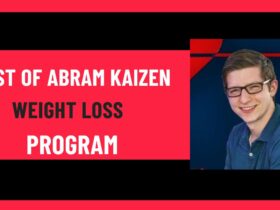
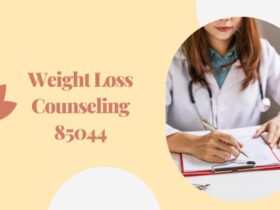


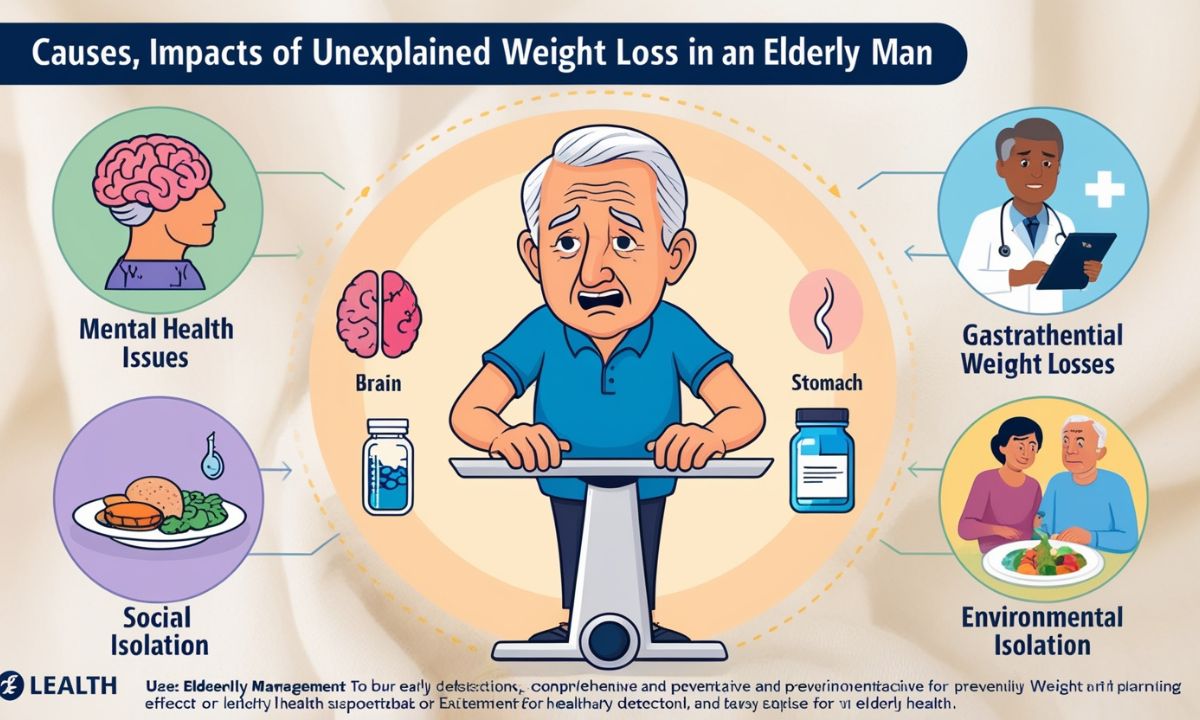


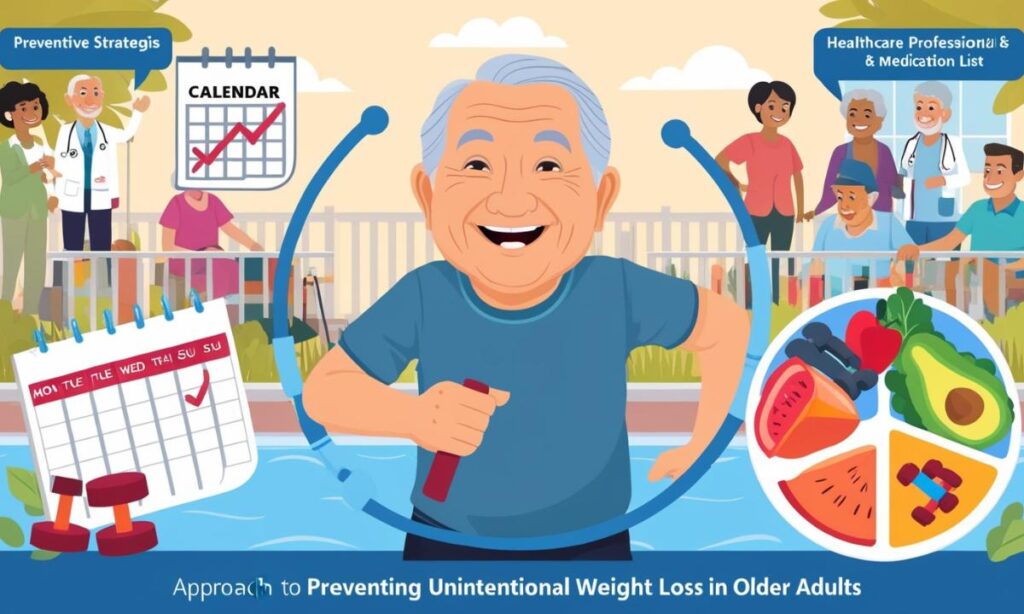





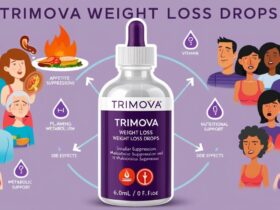

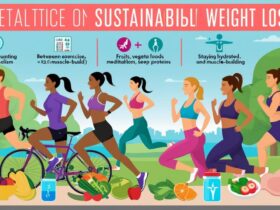

Leave a Reply
View Comments